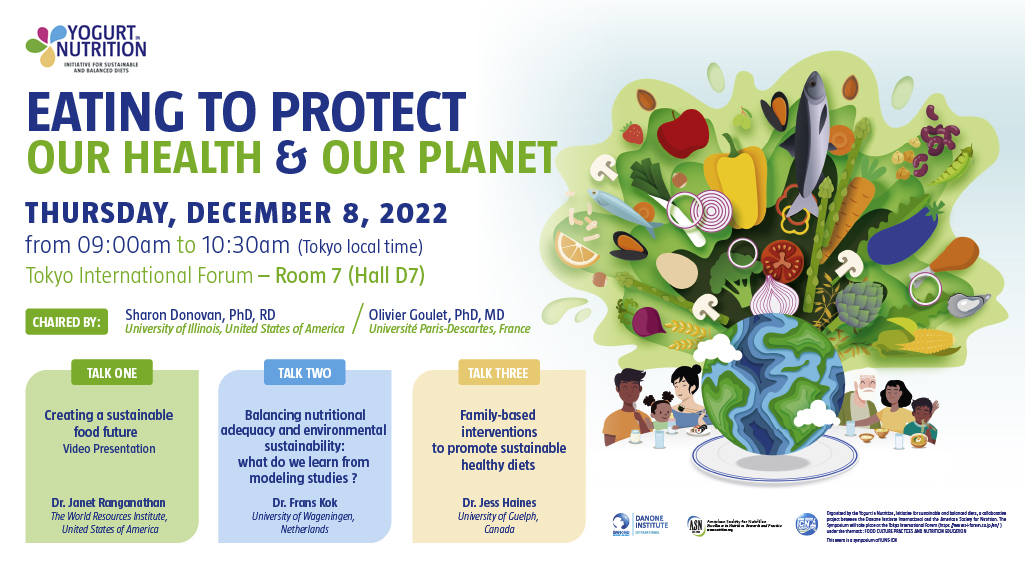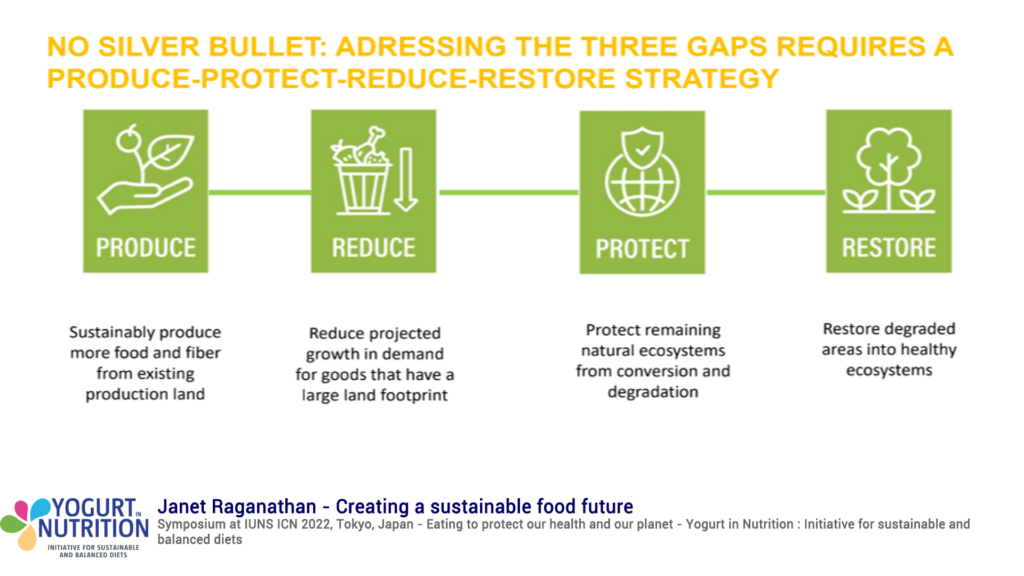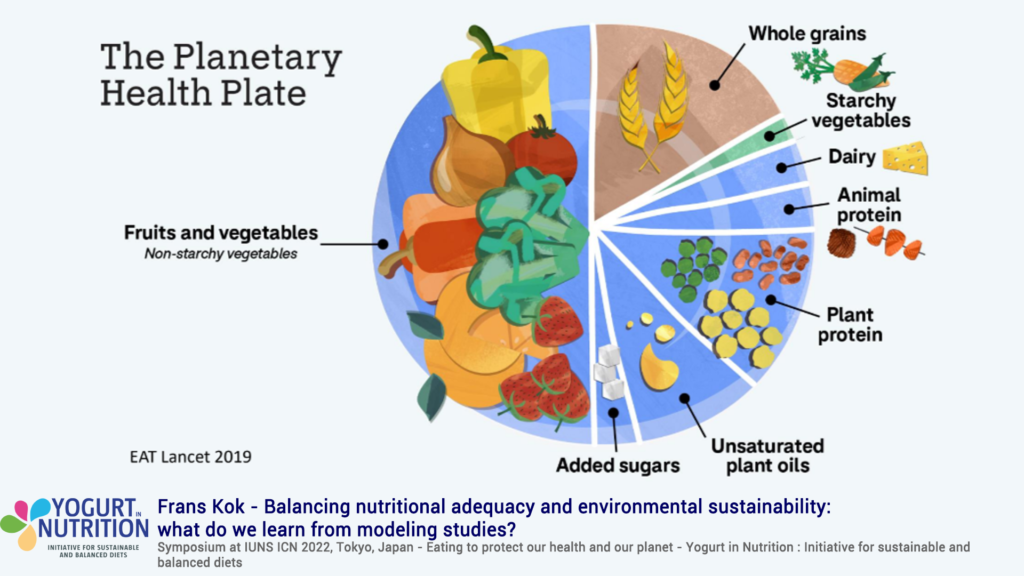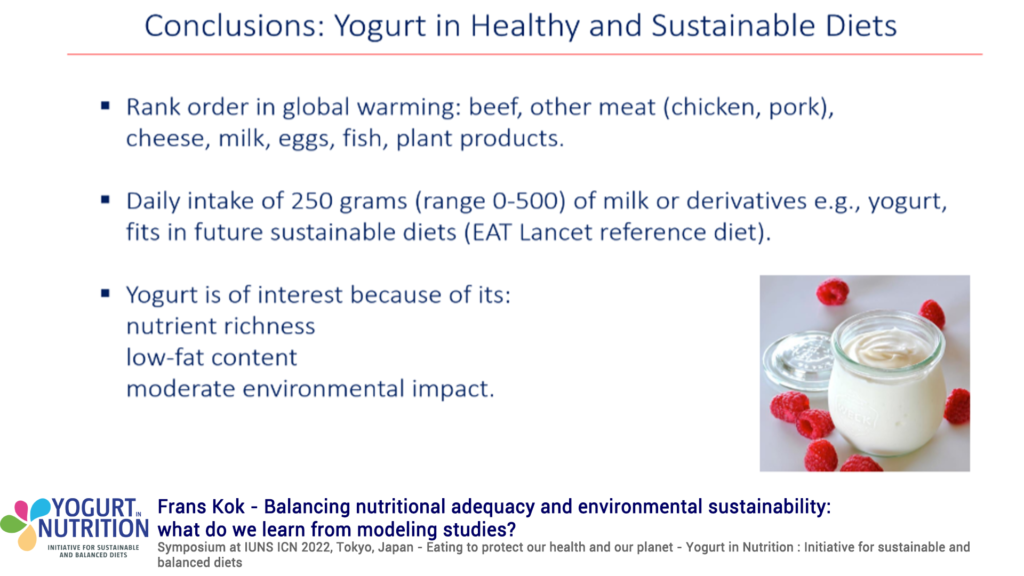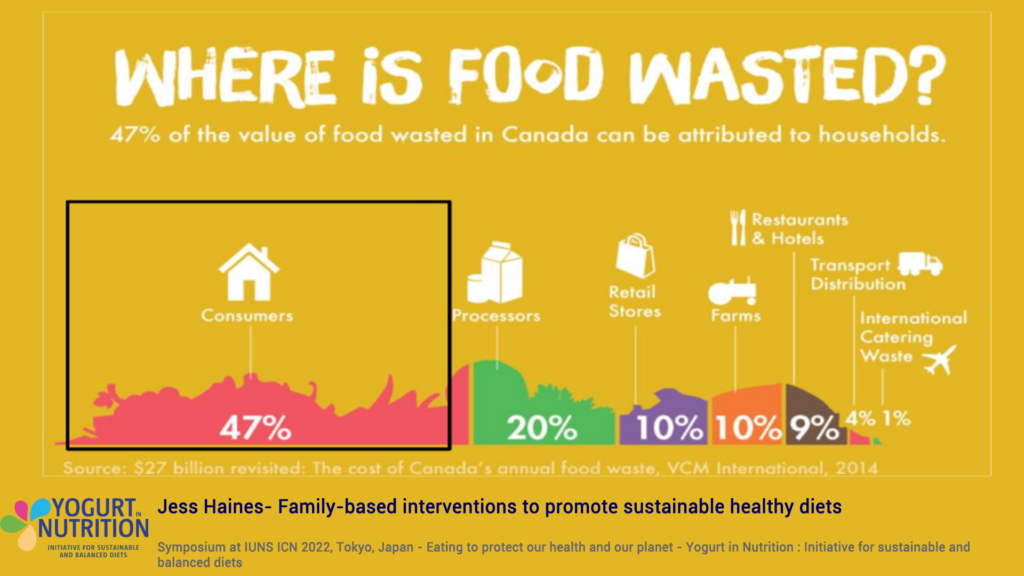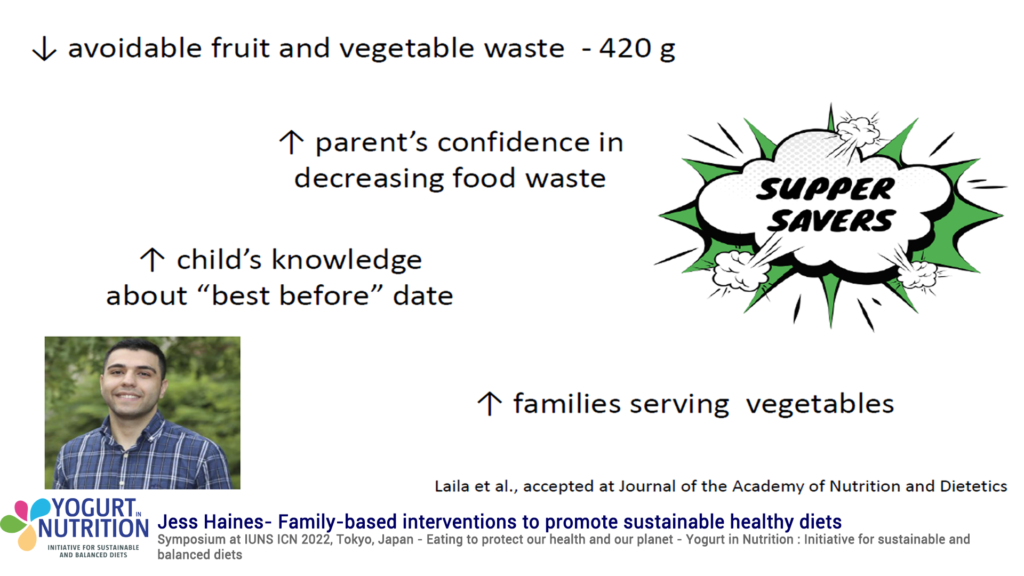During a symposium at the IUNS International Congress of Nutrition, in Tokyo, Japan, the Yogurt in Nutrition Initiative gathered international scientists through a conference focused on ”Eating to protect our health and our planet”.
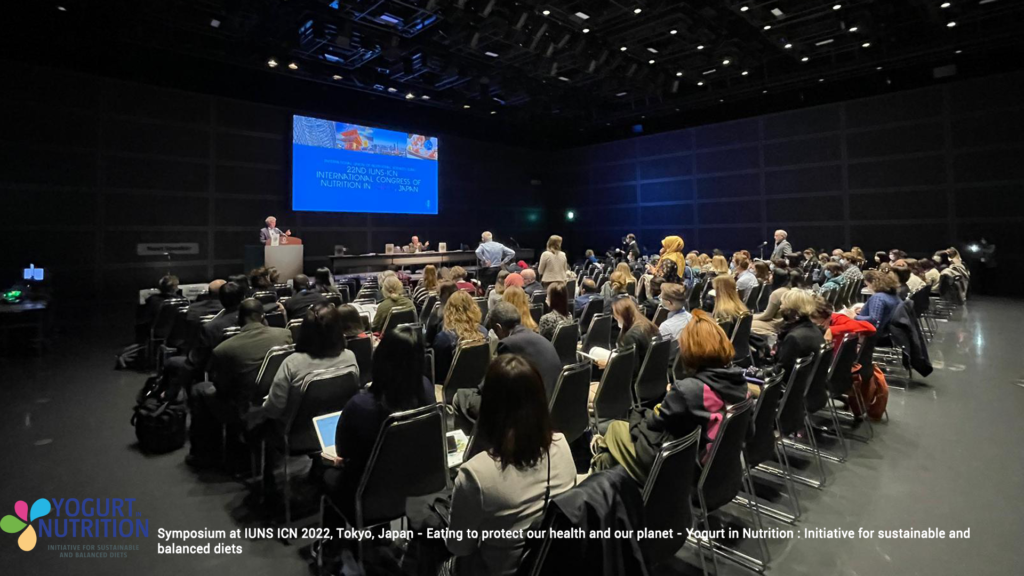 The overall goal of this conference was to highlight the role of food systems, diets and households’ strategies to build more sustainable healthy diets. In this session, chaired by Sharon Donovan and Olivier Goulet, three experts shared their knowledge and strategies on the ways food systems can be adapted for more sustainable diets: Janet Ranganathan, Frans Kok and Jess Haines.
The overall goal of this conference was to highlight the role of food systems, diets and households’ strategies to build more sustainable healthy diets. In this session, chaired by Sharon Donovan and Olivier Goulet, three experts shared their knowledge and strategies on the ways food systems can be adapted for more sustainable diets: Janet Ranganathan, Frans Kok and Jess Haines.
Creating a Sustainable Food Future
Janet Raganathan, Managing Director and Executive Vice President for Strategy, Learning and Results at the World Resources Institute, USA, began the conference by a wide focus on the mains issues the food systems have to face.
Feeding a population of nearly 10 billion in 2050 will require closing three gaps:
- The world will need to close a 11 gigaton GHG (GreenHouse Gas) emission mitigation gap, between expected agricultural emissions in 2050 and the level need to hold global warming below 2°C.
- The world will need to close a 56% food gap between crop calories produces in 2010 those needed in 2050
- The world will need to close a land gap of 593 million Ha to avoid further agricultural expansion
According to Janet Raganathan, addressing these gaps will require a produce- protect- reduce- restore strategy, and therefore to:
- increase food production without expanding agricultural land
- reduce food loss and waste
- shift diets
- find solutions to reduce the impact of ruminants on the environment (for example a more efficient milk production may reduce GHG emissions dramatically)
- address the challenges of the role of carbon in agricultural soils
Balancing nutritional adequacy and environmental sustainability: what do we learn from modeling studies?
Following the intervention of Janet Raganathan, Frans Kok, Emeritus Professor in Nutrition & Health and former head of the Division of Human Nutrition at Wageningen University, The Netherlands, focused on the ways to shift diets and build sustainable nutrition, based on several modeling studies.
Each food group has its own specific environmental footprint and nutritional characteristics and therefore, need to be balanced to form, overall, a sustainable diet bringing both nutritional adequacy as well as environmental sustainability.
However, it seems that most actual dietary guidelines are inconsistent with the 1.5°C target. There is a need to shift our diets taking in account the 4 dimensions of sustainable diet: health, economic, environment and cultural acceptability.
To evaluate to what extent food categories can be part of sustainable diets, observational and scenario-based approaches, and modeling/ optimization strategies have been used.
Models show that shifting the diet towards more plant-based proteins can ease the transition while maintaining the nutrient intake, with some interesting focuses:
- Vegetarian and vegan diets may have positive impact in terms of environmental footprint, but can lead to some deficiencies such as vitamin B12, zinc, or iron.
- Dairy has a moderate impact on sustainability and daily intake of 1-2 servings of dairy may fit in sustainable and healthy diets. Yogurt and milk are of special interest, because of their nutrient richness and low-fat content, but more studies are necessary to quantify their impact.
- Sustainable diets can be composed in different ways. Ideally, current local dietary habits and eating cultures should be the basis for change.
In practice, the best way to achieve sustainable goals, should be to choose a varied predominantly plant-based diet, combined with a reduction of food waste.
By adopting new food consumption habits on a collective and individual scale, it should be possible to reduce food-related GHG emissions and protect the planet’s natural resources. Most probably, convergence guidelines which recommend a reduction and substitution rather than elimination approach may be more effective in increasing dietary transition rates.
Family-based interventions to promote sustainable healthy diets
After Frans Kok describing the modelized diets that should be adopted, Jess Haines, Associate Professor of Applied Nutrition at the University of Guelph, Canada, focused on practical approaches and behavioral changes.
She presented the development, implementation and evaluation of family-based interventions designed to promote sustainable healthy diets.
The family-based approach is meant to increase the intake of plant-based proteins, develop home cooking and reduce household food waste, through interventions among both parents and children.
Food waste reduction is a United Nations Sustainable Development Goal. Approximately a third of all food produced is wasted, with a strong level of household food waste. 47% of wasted food comes from consumers in developed countries.
The good news is that concerns for the environment is a motivator for behavioral change and 41% of young people declare themselves concerned about climate change.
For Jess Haines, we need to implement effective strategies that impact consumers.
She shared a practical example of a family-based intervention study, “Weeknight Supper Savers”. This intervention study included a dedicated cookbook, with tips and recipes designed to reduce food waste, a family cooking and education class, and behavioral supports. Results showed that the intervention could reduce household food waste and that families enjoyed participating in the intervention.
Achieving sustainable healthy eating requires clear messages, based on consumer motivation, as well as persuasive practical advices which will help to remove barriers to change.
The three topics have clarified the main issues that foods systems have to face and opened opportunities to act at different level to build more sustainable diets and achieve behavioral changes among the consumers…
For more information, we invite to find the complete live cover of the symposium on our twitter account @yogurtnutrition

